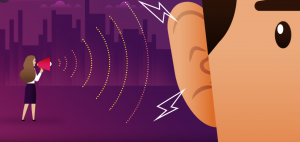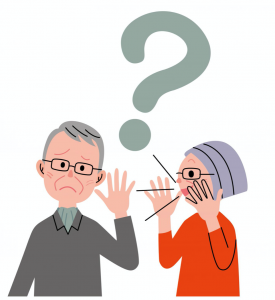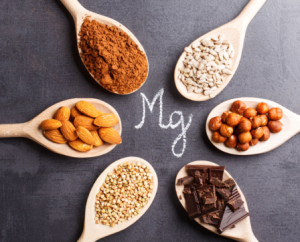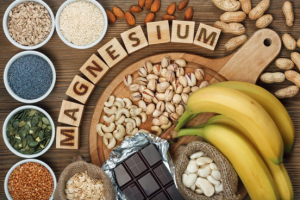Fight Hearing Loss with Magnesium
 The understanding of hearing loss is about to change. There are more and more studies that relate nutritional status to the onset and relief of hearing loss in the medical journals – and health practitioners are starting to take note of the connection.
The understanding of hearing loss is about to change. There are more and more studies that relate nutritional status to the onset and relief of hearing loss in the medical journals – and health practitioners are starting to take note of the connection.
How Bad Is the Problem?
Hearing loss is a major public health concern right now. It affects more than 17% of the population, which comes to about 36 million people.
And hearing loss is more common now than ever, for several reasons. First of all, our population is aging, and age-related hearing loss is common. Secondly, our environment can be very noisy; even a small dog barking can register up to 100 decibels.
And thirdly, many people are using listening devices. These are most likely the cause of hearing loss in the age group of 20 to 29 years where 8.5% of those tested had hearing loss.
The Effects of Hearing Loss
Living with hearing loss compromises quality of life by affecting communication. The social costs of this are compounded by the cost of medical treatment or the purchase of hearing aids. Hearing loss is also associated with increased cognitive dysfunction in the elderly.
The Nutrients That Affect Your Sense of Hearing
Some of the causes of hearing loss include:
• free radical formation in the inner ear
• not enough protection from magnesium
Thus, the addition of antioxidants such as beta-carotene, vitamin C, vitamin E, and magnesium could be the missing factor in the treatment of hearing loss.
What Do the Studies Show?
Magnesium Dampens Noise
As early as 1993, German scientists proved that magnesium supplementation protected against noise-induced hearing loss in a double blind study with 320 military training subjects. The scientists included only those who had normal hearing and then monitored them for blood magnesium levels during two months of training. An audiogram was checked seven days after the last exposure to firearm noise for all test subjects. The firearm noise was 420 shots per person with a mean peak level of 164 decibels. The subjects did use ear plugs
The subjects received a drink containing magnesium or placebo every day during the training period. Results showed that those who did not get the magnesium supplement had twice as much hearing loss as the magnesium-consuming group.
In 1994, Israeli scientists found that noise-induced permanent hearing loss was more frequent and more severe in military recruits who did not take magnesium, compared to those that did. They concluded that a natural substance may reduce hearing damage in population exposed to noise.
Diet and Nutrients Affect Hearing
In 2011, Vanderbilt University research team reported in the Journal of the American Academy of Audiology that in their 2111 adults surveyed there were certain dietary and nutrient factors that were associated with hearing.
Here are some of their findings:
• A diet higher in carbohydrates was associated with a better hearing ability.
• Higher Vitamin C and Vitamin E levels in patients were associated with better hearing.
• When B2 vitamin riboflavin was higher, better hearing was found.
• Magnesium levels that were higher was associated with better hearing ability.
• Lycopene, a phytonutrient, was also associated with better hearing.
• Higher cholesterol levels and higher fat levels were associated with worse hearing.
• Lower retinol levels were also associated with worse hearing.
A 2014 study showed that higher intakes of antioxidants and magnesium, individually and in combination, were associated with a lower risk of hearing loss. The effects were greater than adverse effects on hearing from traditional risk factors.
The researchers from Northeastern University, the University of Michigan, and other institutions concluded that a diet rich in antioxidants combined with magnesium may contribute to a reduced risk of hearing loss.
Join Our Community
Archives
- January 2023
- December 2022
- September 2022
- August 2022
- June 2022
- May 2022
- April 2022
- March 2022
- February 2022
- January 2022
- December 2021
- November 2021
- October 2021
- September 2021
- August 2021
- July 2021
- June 2021
- May 2021
- March 2021
- September 2020
- August 2020
- July 2020
- June 2020
- May 2020
- April 2020
- March 2020
- February 2020
Subscribe

Sign up to receive FREE toolkit
From Dr. Hyman, #1 NY Times & Amazon Author
We never spam or sell your e-mail







Follow Our Every Move